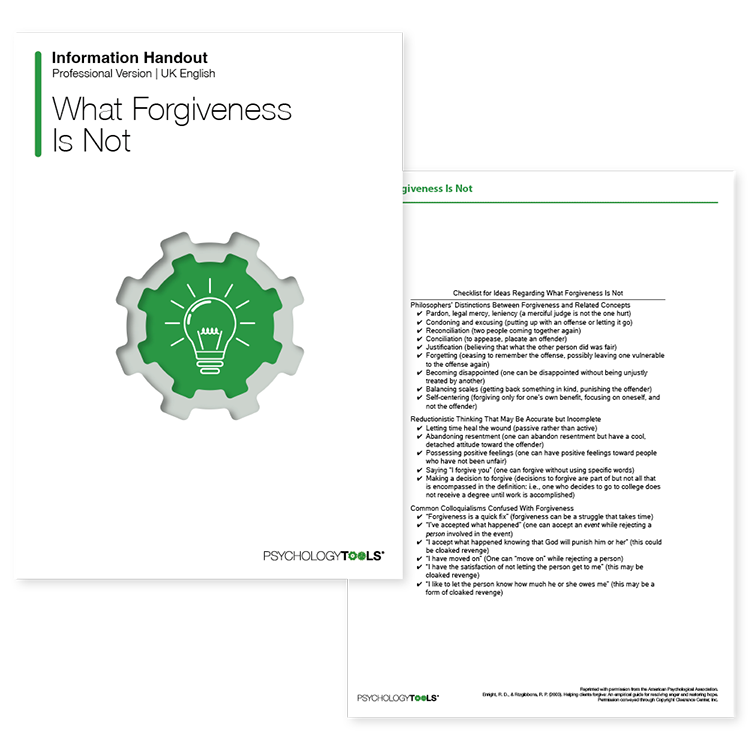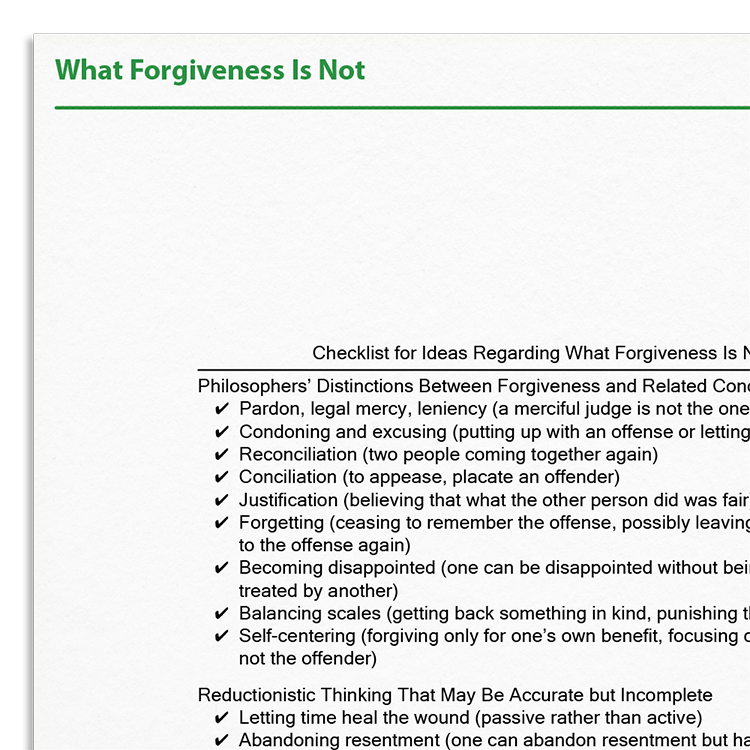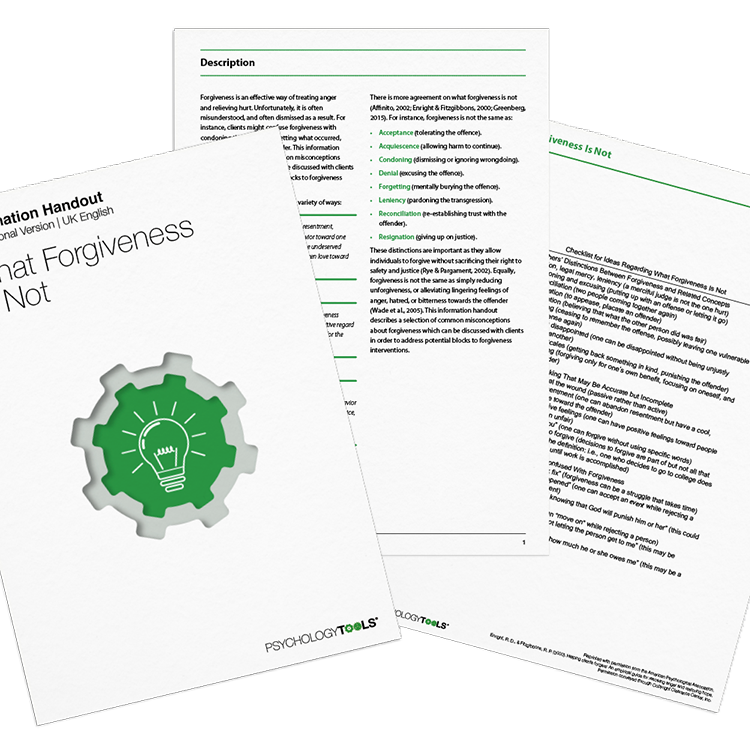Professional version
Offers theory, guidance, and prompts for mental health professionals. Downloads are in Fillable PDF format where appropriate.
This information handout helps clarify some common misconceptions about forgiveness.

Offers theory, guidance, and prompts for mental health professionals. Downloads are in Fillable PDF format where appropriate.

Forgiveness is an effective way of treating anger and relieving hurt. Unfortunately, it is often misunderstood, and often dismissed as a result. For instance, clients might confuse forgiveness with condoning the offence, forgetting what occurred, or reconciling with the offender. This information handout outlines some common misconceptions about forgiveness which can be discussed with clients in order to address potential blocks to forgiveness interventions.
Forgiveness can be an effective way of treating anger and relieving hurt, but is sometimes misunderstood.
Individuals dealing with betrayal or emotional hurt.
Emotional difficulties linked to past transgressions.
Individuals who have experienced significant interpersonal injuries.
Explain what forgiveness is.
Discuss the differences between forgiveness and related concepts such as pardoning or condoning.
Explore whether forgiveness is something the client would consider.
Forgiveness has been defined in a variety of ways, such as, "a willingness to abandon one’s right to resentment, negative judgment, and indifferent behavior toward one who unjustly injured us, while fostering the undeserved qualities of compassion, generosity, and even love toward him or her" (Enright, 1998). While some components of forgiveness are contested (such as the need to feel positively toward the offender), these conceptualizations share an emphasis on ceasing resentment toward the individual(s) who caused the harm or offence (Legaree et al., 2007).
There is more agreement on what forgiveness is not (Affinito, 2002; Enright & Fitzgibbons, 2000; Greenberg, 2015). For instance, forgiveness is not the same as acceptance (tolerating the offence), acquiescence (allowing harm to continue), or condoning (dismissing or ignoring wrongdoing).
These distinctions are important as they allow individuals to forgive without sacrificing their right to safety and justice (Rye & Pargament, 2002). Equally, forgiveness is not the same as simply reducing unforgiveness, or alleviating lingering feelings of anger, hatred, or bitterness toward the offender (Wade et al., 2005). This information handout describes a selection of common misconceptions about forgiveness which can be discussed with clients in order to address potential blocks to forgiveness interventions.

Just enter your name and email address, and we'll send you What Forgiveness Is Not (English US) straight to your inbox. You'll also receive occasional product update emails wth evidence-based tools, clinical resources, and the latest psychological research.
Working...
This site uses strictly necessary cookies to function. We do not use cookies for analytics, marketing, or tracking purposes. By clicking “OK”, you agree to the use of these essential cookies. Read our Cookie Policy